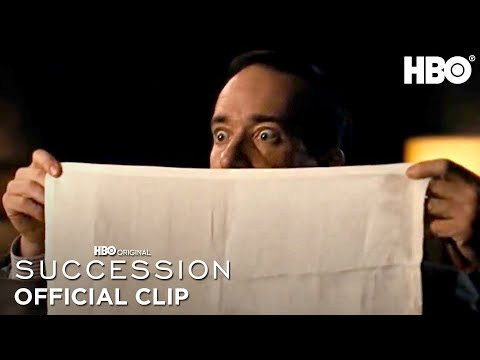Me, at 5:30am: in bed, surfacing, unwilling to open my eyes. The scent of pine sap floats through the open window and birds begin to sing, as they do at first light. Tree swallows. Towhees. A mourning dove, lamenting. I lie still, trapped by cats, and I worry about the birds. Not these birds, specifically, but the ortolan bunting, a tiny European songbird that, when fattened, drowned in brandy, and roasted, is eaten whole — brains, bones, bowels, skinny legs and claw feet, everything but the beak. Long a coveted delicacy, the ortolan is now endangered. It is illegal to trap and sell them for food — which only makes them more desirable. Prohibition never works, and people who can pay are still eating ortolan.
I’m lying in bed worrying about oven-fried songbirds because of Succession, the Machiavellian HBO drama that just aired its final episode. I’m a late adopter — still in season one — and the characters are wrecking my head.
Last night, Tom took Greg out to show him “how to be rich.” At an exclusive Manhattan restaurant, they are served ortolan. Greg is disgusted by the stiff little carcass on his plate, but Tom positively leers with lust at the gross illegality of it all. He drapes a cloth over his head to “mask the shame” and “heighten the pleasure.” Then he eats, and while I do not see it, I hear it — rabid crunching, obscene grunting — and, weirdly, I feel it, an inner wincing, as if I’m the one being crushed by Tom’s teeth. Greg gets under his own veil and takes a bite, because he can’t not take a bite, and his voice — broken, gagging — expresses the horror I feel at the sight, which is not a sight, of this bird being greedily gulped, even though it’s not a real bird and this is pretend and no one is gulping anything at all.
The memory of what I watched last night shapes my first thoughts of the day. I wonder how the bird got past the law and onto the menu. I worry that Greg, who has an innocence to him, will be eaten alive by the rapacious Roy family. I wonder whether Tom faked his pleasure in eating the ortolan — even though I know that of course he was faking it, because Tom himself is fake, imagined by writer Jesse Armstrong and played by Matthew McFadyen, a pure counterfeit and nothing more. And yet.
My brain is happy to treat the fictional creations of someone else’s imagination as fact. It’s as if, in the disinhibition of sleep, I have forgotten that Tom and Greg are not real people. Turns out there is good reason for this: when the brain encounters compelling characters, it connects with them as though they are extensions of the self.
Researchers at Ohio State University wanted to see what happens when the brain “gets lost” inside a story. So they put Game of Thrones fans in fMRI machines and watched their brains while they read cards with the names of characters — Bronn, Catelyn Stark, Cersei Lannister, Jon Snow, Petyr Baelish. Mixed in: a card with their own name, and cards with friends’ names. Beneath each name was a trait — “sad,” “lonely,” “trustworthy,” “smart,” and so on. If the pairing was accurate, subjects were to say “yes".” If not, “no.”
The results are both unsurprising and extraordinary. Unsurprising: When subjects thought about themselves, their ventromedial prefrontal cortexes lit up. That makes sense, since that area of the brain is linked to thinking about the self. Extraordinary: subjects’ ventromedial prefrontal cortexes also lit up when thinking about characters in the show. Their brains experienced imaginary characters as the self. They were becoming Cersei Lannister or Jon Snow. Just like I became Greg — and, in a flight of unfortunate rumination, the masticated bird.
“For some people, fiction is a chance to take on new identities, to see worlds though others’ eyes and return from those experiences changed,” says co-author Dylan Wagner. “We see evidence of that in their brains.”
Story collapses the difference between self and other – a phenomenon with huge implications for how we think about change at the individual, cultural, and political levels. People willingly try on new identities through story – which means story opens them to new ways of thinking, perceiving, and being.
We will have much more to say about this in future posts, but in a nutshell: A brain on story is an open mind. If the problem of polarization is a hardened us/them mentality, an unwillingness — or even inability — to see those who differ from us as fully human, then story offers us a way to practice, and even acquire, a healthier and more productive way of dealing with difference. Polarization closes minds. Stories have the potential to open them back up again.



[QUOTE} Story collapses the difference between self and other – a phenomenon with huge implications for how we think about change at the individual, cultural, and political levels. People willingly try on new identities through story – which means story opens them to new ways of thinking, perceiving, and being. [/QUOTE]
Huge implications indeed. Raw news reports are more remote from what a person can relate to, feel, experience, than a story involving the same elements.
A story, if good enough, will capture a person's interest in a way logic and facts will not.
Really significant.
Fascinating and a little creepy in a seductive way.